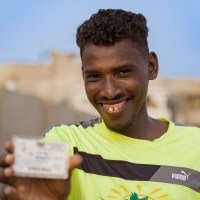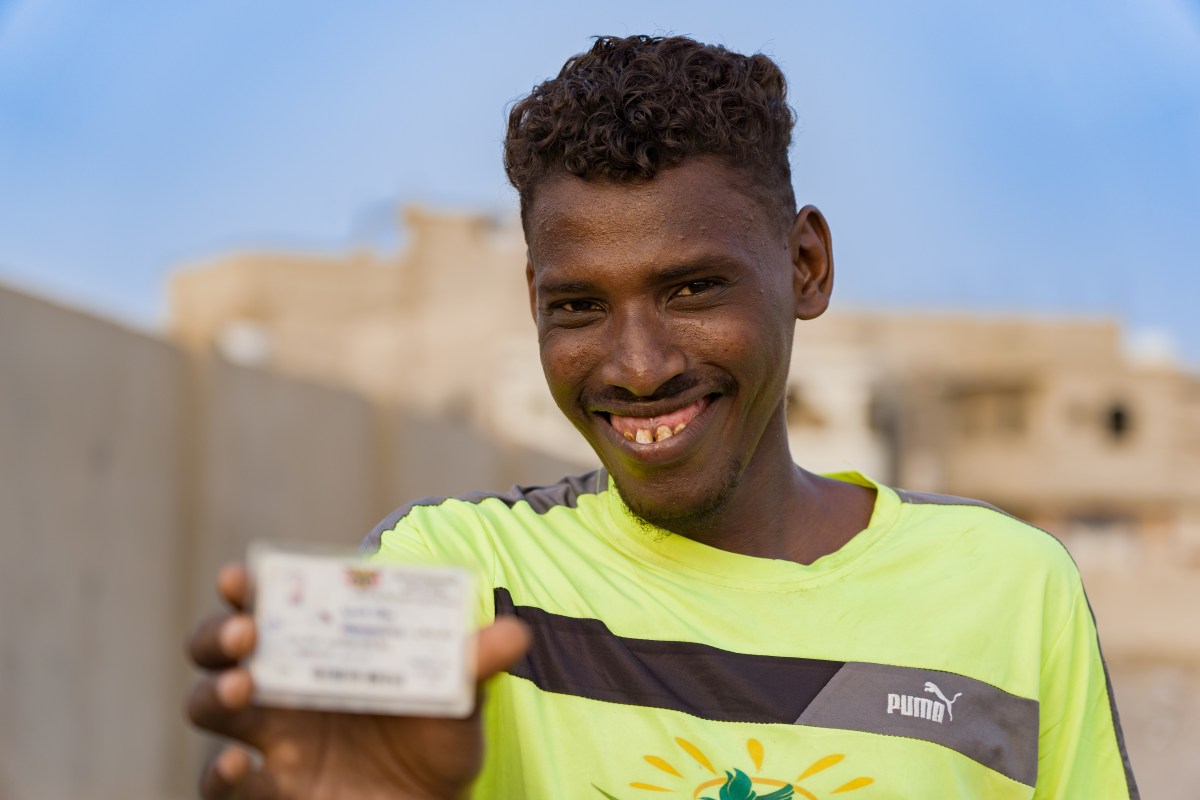You’re starving. You cannot work without an identity document (ID) card. Friends have sent you money, but without an ID, a money transfer provider won’t give it to you. You can’t even access the humanitarian aid available in your wartorn country. You’d move, but without an ID, you can’t pass through a checkpoint without paying a hefty fine, and who has the cash for that? Without an ID card, you don’t feel like a legitimate citizen even though you were born here.
For many Muhamasheen and members of other marginalized groups in southern Yemen, this is their everyday reality. Even though citizens should get an ID card when they turn 16, members of marginalized groups often don’t. Nearly ten years of war have drained government resources so the offices issuing IDs often don’t have the paper, ink, printing machines, or electricity needed to make them for everyone. ID requests from members of marginalized groups are often put at the bottom of the pile, where they stay as requests stack up. Hyperinflation and dwindling public sector salaries mean paperwork gets prioritized based on status and who can pay more.
We’ve been working in Yemen for a while, using the Common Ground Approach to transform the drivers of conflict into successful development initiatives. Thanks to peacebuilders like you, now there are desks in schools so marginalized students have a place to learn, reducing discrimination towards Muhamasheen students. We repaired a water network, so 350 homes now have running water, which improves health outcomes, reduces gender-based violence, positively impacts education, and reduces discrimination towards marginalized groups. Our community of peacebuilders installed the electric cable infrastructure needed for electricity at the flip of a switch, improving the quality of life for whole communities. And together, we’ve placed trash containers in neighborhoods, convincing community members and the local authorities to work together to keep their neighborhoods clean, thereby improving the health of all.
After speaking with insider mediators, the community leaders who know the local context and have legitimacy in their communities, community members, and the local authorities, we saw an opportunity. Using the Common Ground Approach, we learned that local authorities do not have the capacity to make ID cards for the number of people requesting them. Due to war and displacement, many adults don’t have their birth certificates, which they need to get an ID card, or the cost of getting an ID card is out of reach for some people. Because ID cards are necessary in almost every facet of adult life, and marginalized groups have to wait longer and pay more money to get theirs, not having an ID card is a source of conflict.
Thanks to your support, our peacebuilders convinced the local authorities to make more ID cards for everyone on the condition they treat requests for ID cards from marginalized groups fairly and not put them at the bottom of the pile. Peacebuilders like you bought the cards, ink, printers, and fuel for generators so there would be electricity to run the printers. With these infrastructure investments, the local authorities were able to process ID cards more efficiently. They were also able to issue birth certificates, which children need in order to enroll in school.
Besides making daily life easier, having an ID card was a symbolic recognition of identity and personhood. The Muhamashheen and other marginalized groups are not always regarded as “true Yemeni” because of their darker skin. Having an ID card legitimizes them as Yemeni citizens because the IDs formally affirm their Yemeni identity, building confidence and restoring agency.


